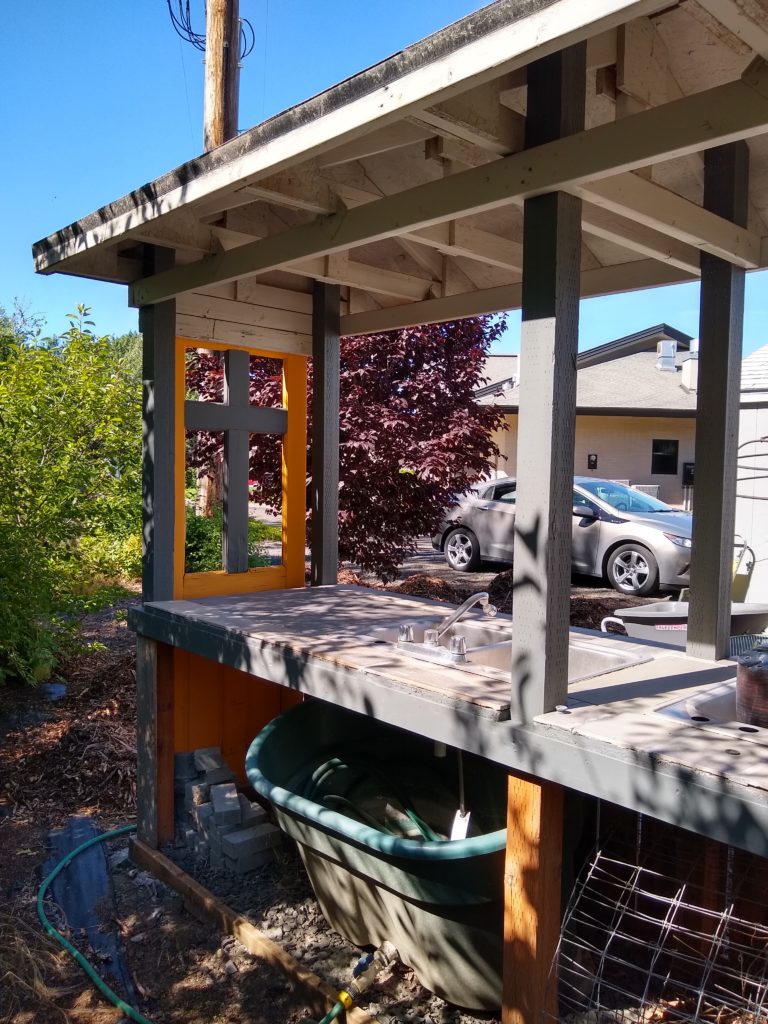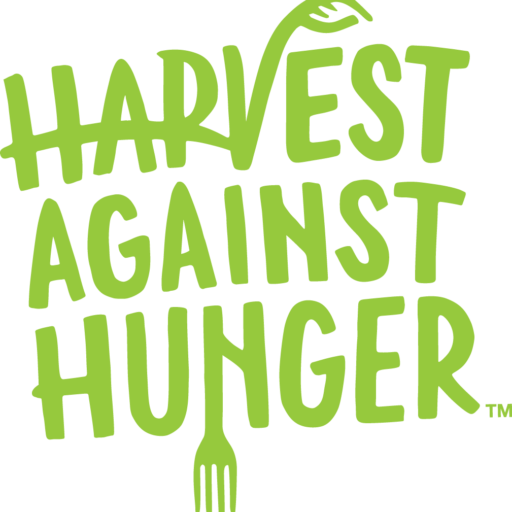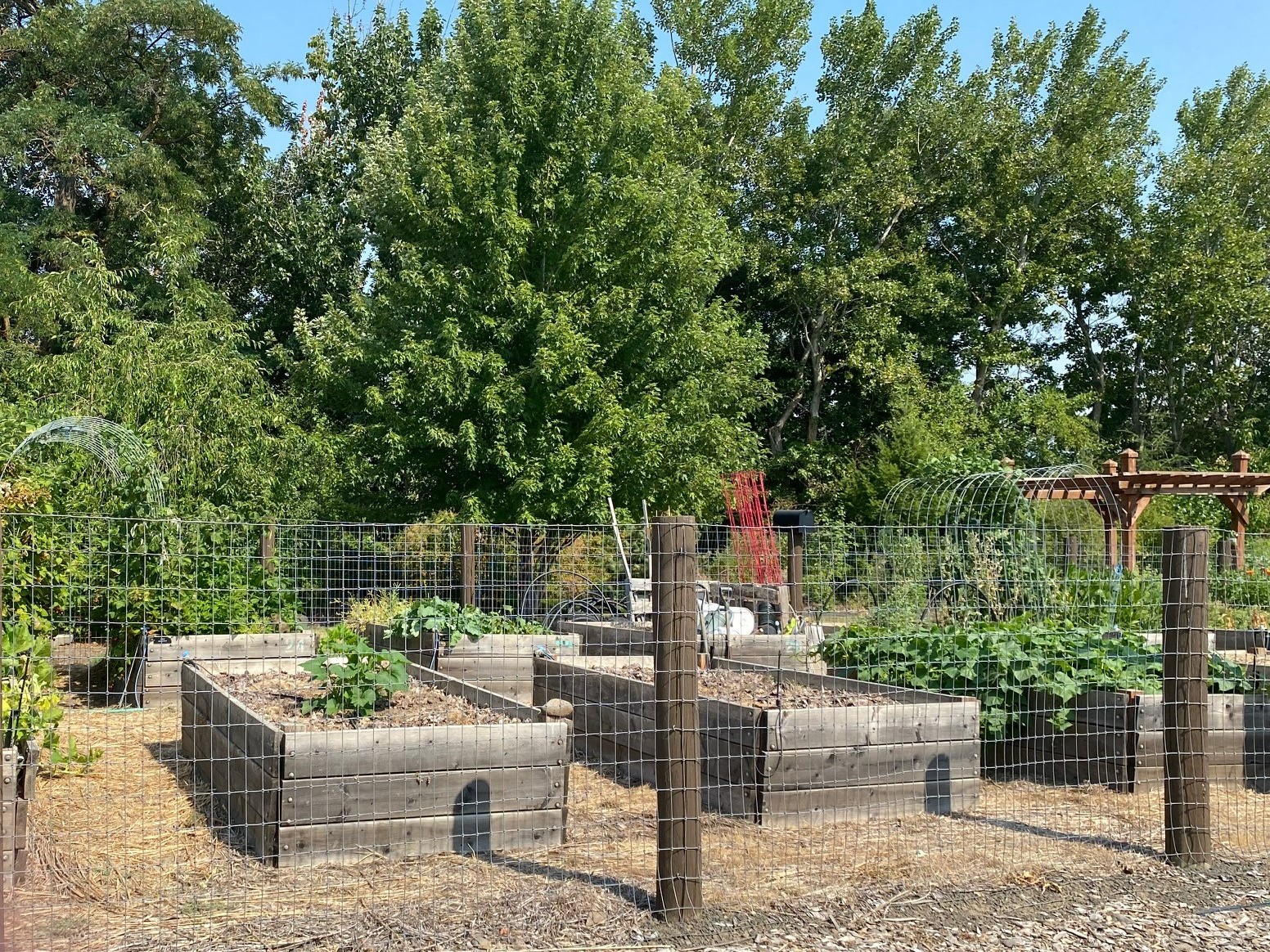How Can We Help?

BMAC, in partnership with The Sustainable Living Center, is creating a new model for a community garden. Since the pandemic, Assumption Garden has lost momentum and volunteers. Located on Assumption Church’s property, the garden has the infrastructure including ADA accessible beds, an automated drip line, a small greenhouse, storage space, wash/pack area, compost bin, and garden tools. The space has incredible potential for producing food and providing an educational space but is not being utilized as half of the 26 beds are currently empty. Originally, the garden was used as a community garden for the parish but in order to create the most impact, BMAC and SLC are reworking the model. A garden for the community is something different from a community garden. Assumption Garden is intended to be a space where food and education converge, a space that meets the wants of people rather than their needs.
Meeting wants rather than needs is rooted in providing food with dignity. Needs are met by the emergency food system including food banks, SNAP, and meal programs. Wants are a privilege that are rarely afforded to those experiencing food insecurity. Walk-through food bank distribution models meet these wants and provide choices to clients. Assumption Garden is informed by these models, scaled down by capacity.
When reworking the mission of a space, it is important to set clear expectations and roles for those involved. Creating a planning committee of invested parties that have the capacity to dedicate to the project is essential in any further steps. With this committee, establishing roles will help progress the project and delegate work as those working on the project have numerous other responsibilities. These roles may vary based on project and need, for example, at Assumption there are three key players: volunteer coordination and logistic support, garden management and communications, and finally social media and outreach. These roles are fulfilled by the Farm to School Coordinator, AmeriCorps VISTA at BMAC, and Whitman College Sustainable Living Center Fellow. Having people from a variety of backgrounds is incredibly helpful in generating innovative ideas and gaining connections in the community.
Establishing the or an objective and ‘the why’ will help focus energy, explore partnerships, and succinctly describe the goals with those organizations. Assumption’s objectives include making the biggest impact by scale, filling gaps not met by the emergency food system, creating a direct source of produce, providing culturally appropriate foods, and allowing choice. Though five objectives may seem like a large undertaking, as long as the objectives are connected and reasonably achievable all will help inform the work. The goals for Assumption are providing accessibility, dignity in choice, and building community. Clearly stating objectives and goals will help in communicating this mission and gain investment from parties who have similar interests.
In forging partnerships, reaching out to organizations with a similar mission will help find successful matches. For Assumption Garden, it is important to the planning committee to partner with an organization that serves vulnerable populations whose wants and needs are not being met by current systems. Four organizations rose to the top for partnerships with Assumption. YWCA, Hope Street Women’s Recovery House, Immigrant Rights Coalition, and the Senior Center all provide services that would benefit from access to fresh produce, garden space, and community education space. Find the contacts for organizations that have a similar mission and reach out. In the case of Assumption, the Senior Center is planning their own garden and ended up not wanting to participate. The YWCA and Hope Street currently have 10-15 people living at these organizations. Based on Assumptions production, there will be enough produce to supply to these organizations as well as Immigrant Rights Coalition.
With partner organizations established, it is important to create a survey to learn basic information about households, understand barriers to accessing fresh foods, food traditions, and how best to create community. Information from the survey can help meet the wants of those you are serving and putting their voice first rather than assuming what people want. This is critical in establishing a program centered around dignity.
Example questions include:
- How many people are you feeding?
- What does dinner look like to you?
- How do you prepare vegetables most often?
- What barriers do you encounter when it comes to using fresh produce? I.e. lack of time, lack of storage, lack of recipes, unsure how to prepare, limited tools for cooking, etc.
- How can we help overcome these barriers? I.e. recipes, storage tips, nutrition tips, tools, etc.
- What types of produce are you missing that you would like to see available (ex: culturally relevant foods)?
- What are your favorite recipes?
- What are foods you’d like to cook with?
- What are your staple foods?
- What are skills you have that you’d be willing to share with your community?
- What type of classes would you want to participate in? ex. Cooking classes, gardening, canning, drying, meal budgeting
Coming from a place of knowing what people want based on responses to a curated survey versus assuming what people need bridges the gap between the emergency food network and food with dignity.



